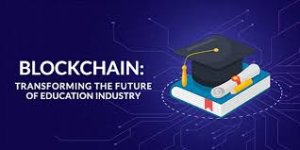- By Ambarish Datta
MD & CEO of BSE Institute and a member of the Board of Directors for BFSI Sector Skill Council of India
Blockchain – the new kid on the block has been making news for some time now. While there are many who have been skeptic about it, there are a few who have started exploring its use. Block chain – now Blockchain is a distributed database that maintains a continuously growing list of ordered records called blocks. Each block contains a timestamp and a link to a previous block. Blockchain by design are non editable.Bitcoin the new crypto currency is built using the Blockchain framework. Currently Blockchain seems extremely popular for the financial services Industry with multiple type of applications being explored. However, does Blockchain have any application to a completely diverse industry like Education & Skills?
One of key systemic shifts in learning is that it has become decentralized and beyond any boundaries. Diversified across multiple channels, learners now are breaking conventional stereotyped ways to acquiring new knowledge on blocks. No longer is it necessary to visit a college to acquire knowledge or skills. With technology, learners are finding newer ways to do so without any fuss. These alternate ways to learn are now challenging the very existence of universities and colleges across the globe. Also, learners are realizing that smaller chunks of learning, acquired over a period of time works much better than a conventional credential driven certificate from the college. It no longer matters where these knowledge blocks are acquired, as long as the learner can demonstrate successfully the knowledge or skills purposefully. So, can Blockchain be used in education?
Recordkeeping:
One key challenge for the education and skill domain has been the need to keep a reliable repository of academic and workmanship records. There are many examples where prospective employees have overstated academic accomplishments and experiences helping build an entirely new industry for employee verification services. A secure repository of such records, time stamped can be a big help for all stakeholders including students, universities, employers and others.
Badges:
With learning blocks being acquired from multiple platforms (classroom, online, peer to peer, activity led etc), it is time that a newer way to record such learning’s is established. The current format of using “ certificates” only as the way to record needs a review, since all learning’s now necessarily do not lead to a formal certificate. Say a badge for every learning block acquired could be issued. Using Blockchain such badges would be recorded and time – stamped and like a stack of cans be kept in a database. Badges could subsequently be used for up-skilling and used as learning currency for progression.
Credentialing:
Conventional academic degrees received from colleges are falling out of favor lately. Especially for a country like India, where academic degrees have not meant necessarily, employability, credential recordings need a review. An end of the course examination to test knowledge, which leads to a certificate, is no good if the learner cannot demonstrate the same for the purpose of employment or earning a livelihood. Using badges for each learning block which are peer certified and non-editable, instead can be used to keep a record of all credentials earned during a lifetime. Using the Blockchain technology, such credentials would be more valuable to establish competencies than the current practice of issuing certificates.
On the Job training:
Learning on the job is a critical part of the overall learning process, especially for an apprentice. Currently with over emphasis on classroom training and very little on, on the job training – any new talent struggles when they are made to work in the real work environment. With the new apprehentice act already in place, a greater focus on this is expected soon in India. Blockchain technology could help centralize such humongous data but also validate the process and certification for such learners.
Continuous Professional education:
In this hyper active world today, the need to constantly upgrade is a critical need for professional and personal growth. However, such continuous learning’s are from multiple sources including conferences, formal classroom sessions, mentorship sessions, on the job, peer to peer and many more. Sadly this is difficult to track today and is highly fragmented. How about using Blockchain technology to seamless record this and stack this up in a repository?
Blockchain is showing an exciting promise to change the way we currently do things in education. While there are a few who are willing to experiment, it is probably very early days. Sony Education sometime last year announced a Blockchain project to conduct assessments. Little is known about the current status of the project. While these baby steps are being taken, it is also important to know the concerns about using such a technology for education. Prime amongst those being privacy issues. Also Blockchain is like a ledger. So is learning transactional now? And like financial transactions in a ledger, can this be used for recording learning blocks? The future has already started yesterday, but are we late? Or is the best yet to come? Only time will tell.

